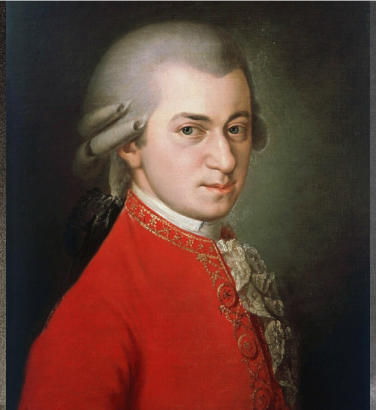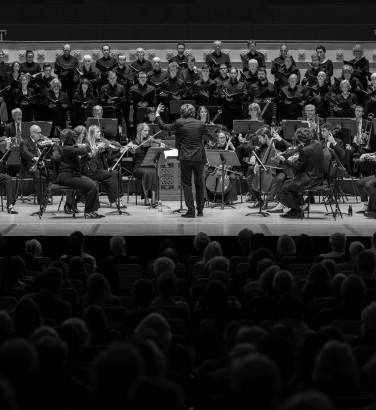
The cello concerto
26 Aug 2024
News Story
SCO Principal Cellist Philip Higham (photo credit: Christopher Bowen)
This article marks the launch of an occasional series this Season focusing on the concerto as written for specific instruments in the orchestra. With contributions from SCO players, we hope these give you some new insight into works you know and an idea of others they would recommend seeking out.
Future articles will cover the flute, oboe, clarinet, bassoon, trumpet, violin, viola and double bass, but we open with the cello. (We will add the horn and percussion in due course.)
The cello enjoys a prominent position in concerto repertoire. True, pianists and violinists have many more to choose from, but the smaller number written with cellists in mind means greater familiarity (including from audiences) with a core of well-loved classics. With a solo instrument equally at home conveying poise and elegance as it is passionate outpourings, the cello concerto encompasses some of the most popular works in the entire genre – with no shortage of alternatives just a few steps away from this particular beaten track.
Asked to nominate their personal favourites, the SCO’s cellists – Principal Philip Higham, Sub-Principal Su-a Lee, Donald Gillan and Eric de Wit – therefore have quite a range to choose from. When it comes to the top-tier concertos for their instrument, however, all four name either the Dvořák and/or the Schumann. Philip highlights the “emotional content and narrative” of the former, encompassing “powerful declamation, noble lyricism and […] nostalgia”, with the soloist being required to be both "main protagonist [...] but also sometimes to become more of a concertante player, one of a group of voices". For Donald (who admits he may be biased), it’s quite simply “one of the finest pieces of music of all time”.
Su-a’s own favourite is the Schumann, especially since Philip provided “[her] new favourite rendition” in early July, when he played the solo part (also under Maxim) during this year’s Summer Tour. Reflecting on what a new cello concerto "should" (his inverted commas) have sounded like in 1850, Philip himself is particularly impressed by Schumann having gone beyond ticking all the boxes to create something "genuine, inspired [...], infused with meaning [...] from a decade of song writing". He does, however, also draw attention to the “more reserved, even austere” concerto by Walton, an "enigmatic and moving piece”.
When it comes to supposedly lesser concertos, our cellists have plenty to recommend, even if their instrument’s potential as a solo instrument didn’t really take off until the 19th century. There is nonetheless a handful of concertos from the Baroque and Classical periods, including several by Vivaldi. Boccherini (a cellist himself) wrote a dozen, and Eric particularly regrets that only one or two of these are ever performed, as they are “such charming music”.
You might also expect at least one of the SCO cellists to mention Haydn - which Philip does, but not with regards to the pair of solo concertos. For him, they are not on a par with the "absolute joy" that is the Sinfonia Concertante for oboe, bassoon, violin and bassoon, in which "the cello gets to shine both lyrically and brilliantly". Philip also points to Dvořák’s much earlier (and little-known) A major concerto, which survives “only in a cello and piano version” and is well worth a listen despite a first movement he describes as “rather untamed”.

SCO Sub-Principal Cello Su-a Lee (photo credit: Christopher Bowen)
Moving ahead to the 20th century, we find an enormous volume of cello repertoire written for Mstislav Rostropovich, including works by Shostakovich, Britten, Lutosławski, Dutilleux … all the way up to Sir James MacMillan, whose Cello Concerto he premiered in 1996. The SCO cellists have cast their nets rather wider, however. Donald opts for Bloch’s “passionate and deeply moving” Hebraic rhapsody Schelomo (the Hebrew name for King Solomon) and Tavener’s The Protecting Veil, in which the solo cello’s “exquisite and rapturous theme” soars into the uppermost reaches of the instrument’s range.
Su-a, for her part, recommends seeking out the two very different concertos by Bacewicz: the first “full of joy, charm and deep passion”, while the second is “much more experimental and explores a different sound world”. Finally, Philip has a soft spot for Finzi’s Cello Concerto, a piece to counter this composer's reputation for “comforting, pastoral music, […] expertly and creatively written for cello”.
Beyond the concerto repertoire itself, the cello also has a firm place as a solo instrument within the orchestra. The slow movement of Brahms' Piano Concerto No. 2 has a prominent solo line for the Principal Cello, and five of them share the spotlight in depicting the Alpine dawn which opens Rossini's opera William Tell – and that's before considering the impassioned tone the entire section can convey when the likes of Tchaikovsky gives them the tune.
Our cellists also highlight Strauss as a composer of fine solo cello lines: Su-a is “particularly fond” of Le Bourgeois Gentilhomme, while both Philip and Donald are understandably drawn to Don Quixote, in which a solo cello embodies the title character. As Donald puts it, the music "seems to express the whole gamut of experience and emotion in [his] life.”

Eric de Wit and Donald Gillan (photo credit: Christopher Bowen)
The cello also has an important presence in the chamber sphere. Among the music most appreciated by its players are string quintets in which the standard quartet is supplemented by a second cellist. Schubert's Quintet in C is probably the most celebrated of these, not least for its sublime slow movement, but this is again to overlook the many (over a hundred) written by Boccherini. (His best-known work, the Minuet from the String Quintet in E major, Op. 11 No. 5 will be familiar to anyone who has seen the Ealing comedy The Ladykillers – or indeed This is Spinal Tap.) Eric would also recommend seeking out lesser-known examples from Russia, for instance Arensky's String Quartet No. 2 (scored for a single violin and viola, with two cellos), Tchaikovsky's Sextet and quintets by Taneyev and Glazunov. Add these to the string sextets of Brahms and Dvořák, and Schumann's Andante and Variations (in its original version for two pianos, two cellos and horn) and it’s small wonder he feels "we are rather lucky!"
Despite this embarrassment of riches, there are some noticeable gaps in the cellist's repertoire. Mozart only showed a passing interest in the cello – it is admittedly prominent in his three Prussian Quartets, written for the Prussian king (who played the instrument), and Zerlina's Act II aria in Don Giovanni has a solo cello part – but to quote Steven Isserlis, it is "one of the greatest frustrations for us cellists" that his one known concerto has been lost. Brahms' Double Concerto does feature the cello among the solo instruments, but his not having composed one for concerto for cello alone (and the similar lack of one by Mendelssohn) is something both Philip and Eric deeply regret. Another omission is Sibelius, whose Violin Concerto is much admired by Donald – to the extent that he admits to wondering (“with some envy!”) what a Sibelius cello concerto would have been like.
On a more positive note, there are several living composers without a cello concerto to their name ... as yet. Su-a would particularly love to see one from SCO Associate Composer Jay Capperauld (who "writes with such wit and brilliance"). Time will tell, but in the meantime, there is clearly no shortage of other music our cellists love performing!
Related Stories
![Three men, the first two in 18th century formal dress (one in black and white, one in a red coat), the last in an old photo, smoking]()
What is a sinfonia concertante?
17 March 2025
We delve into the history of a hybrid genre ...![]()
The SCO Chorus on music for Lent
10 March 2025
With Easter just around the corner, we delve into perhaps the richest (and often darkest) choral repertoire of all ...![]()
The bassoon concerto
3 March 2025
For the last article in our concerto series (for now), we turn to an instrument too often dismissed as the orchestra's resident joker.


